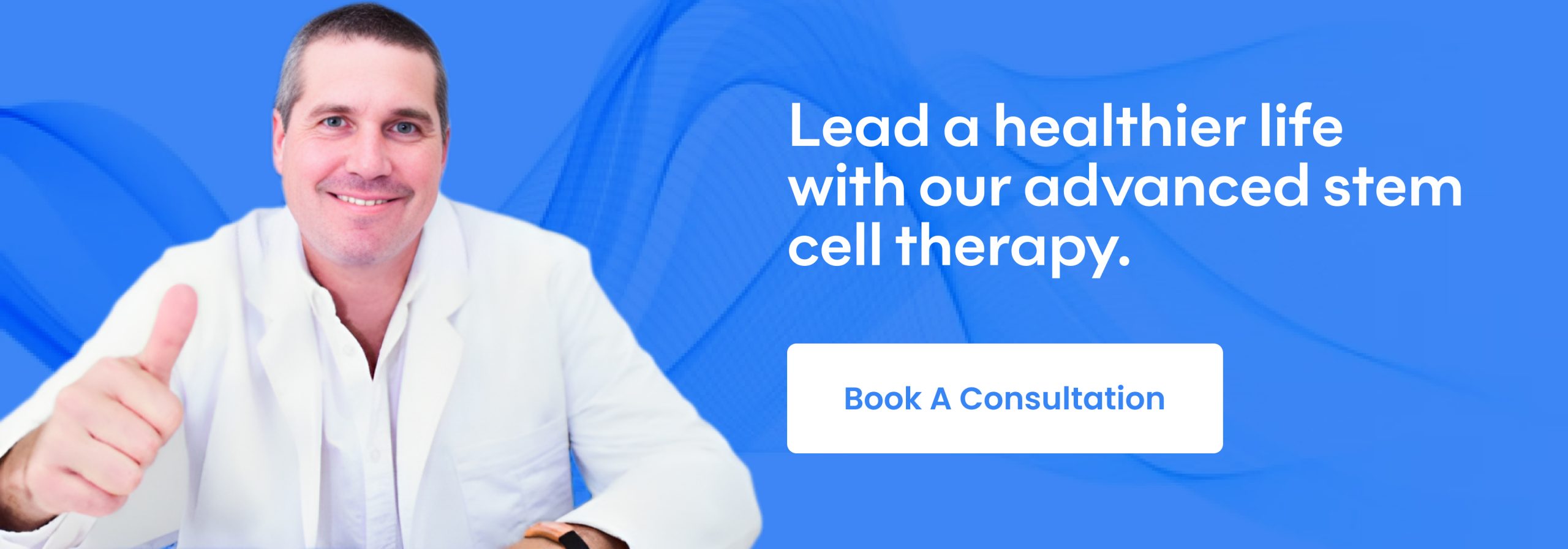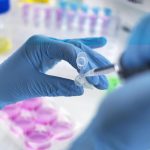- Home
- About Us
- Book Appointment
- Treatments
- Alzheimer’s Disease
- Anti-Aging
- Autism
- Autoimmune Disorders
- Back Pain
- COPD
- Crohns Disease And Ulcerative Colitis
- Erectile dysfunction and Penis enlargement
- Fibromyalgia
- Hip Pain
- Knee Pain
- Lupus
- Lyme Disease
- Multiple Sclerosis
- Muscular dystrophy
- Parkinsons Disease
- Peripheral And Diabetic Neuropathy
- Post Cancer Treatments
- Post Stroke Recovery
- Psoriasis
- Rheumatoid Arthritis
- Shoulder Pain
- Join The Club
- Aesthetics
- Blog
- Contact Us
Male infertility remains a global health concern worldwide that affects nearly 12-15% of couples every year. Just like other health conditions impact the quality of life of the patients, male infertility also impacts the psychosocial or mental well-being of the affected couples. With recent advancements in medical science and technology, particularly in regenerative medicine, addressing male infertility has become possible. Research on spermatogonial stem cell therapy has shown promising outcomes in restoring fertility and enhancing sexual activities in men.
This blog post focuses on a particular type of cellular therapy called spermatogonial stem cell therapy and its clinical application in men to address infertility issues.
Table of Contents:
- What is Male Infertility?
- Symptoms of Male Infertility
- Types and Causes of Male Infertility
- What are Spermatogonial Stem Cells?
- Role of Mesenchymal Stem Cells In Promoting Spermatogonial Stem Cells
- How Does Spermatogonial Stem Cell Therapy Treat Male Infertility?
- Safety and Efficacy of Stem Cell Therapy
- Best Place to Get Stem Cell Therapy For Erectile Dysfunction
What is Male Infertility?
The World Health Organization (WHO) defines male infertility in humans as the inability to fertilize their female partners through unprotected and regular intercourse for 12 months or more. As per the latest statistics, over 30 million couples worldwide are facing infertility issues, with the highest numbers observed in African and Eastern European nations. Although infertility is associated with both men and women, almost 20% to 30% of couples experience difficulty in conceiving due to male infertility.
A decline in the sperm count over time, the diminished quality of the sperm, and abnormal blockages or functioning of the reproductive system result in infertility in men. Male infertility is one of the primary reasons for social distress among couples and their families, alongside mental and financial burdens. Hence, early diagnosis of the problem and proper medical intervention are necessary.
Read Also: Healing Power Of Stem Cell Therapy: A Comprehensive Guide
Types and Causes of Male Infertility
Male infertility can be of various types based on the causes and fertility parameters. Let’s understand each of the types and associated symptoms.
Erectile Dysfunction (ED) – It is a type of infertility disorder that occurs when a man is unable to maintain a firm erection that is long enough for sexual intercourse. Partners of patients with ED often face difficulty achieving pregnancy. Reduced sexual drive, difficulty getting an erection, difficulty keeping the erection, and unsatisfied sex are the common symptoms of erectile dysfunction.
Azoospermia – Azoospermia is a reproductive disorder in men characterized by the complete absence of sperm in the fluid after ejaculation. It happens because the testicles are unable to produce or release mature sperm. Prominent symptoms of Azoospermia are erectile dysfunction, swelling or lump around testicles, decreased hair on the body and face, and lower sexual desire.
Hypogonadism – Male hypogonadism is the body’s inability to produce enough testosterone, resulting in infertility and sexual problems. Testosterone is the hormone responsible for masculine growth and proper functioning of the reproductive organs in men. Reduced sex drive and erectile dysfunction are the effects of hypogonadism in males.
Other than biological reasons, various lifestyle and environmental factors also affect the fertility of a man, such as exposure to toxins, excessive smoking and alcohol drinking, obesity, anxiety issues, emotional stress, and depression. The next segment of this article sheds light on the potential of stem cells in treating male infertility and improving patient’s quality of life.
What are Spermatogonial Stem Cells?
Spermatogenesis is the process of developing male gametes or sperm cells by the testes. Spermatogonial stem cells (SSCs) are rare adult stem cells found in the male body that are crucial for maintaining the healthy spermatogenesis process. SSCs are considered the foundation of the male reproductive system and male fertility.
Spermatogonial stem cells are found in the basal membrane of seminiferous tubules and undergo cellular mitosis to promote differentiation, self-renewal, and formation of sperm cells. These cells play a critical role in maintaining a stable stem cell pool by developing mature spermatozoa over time.
Role of Mesenchymal Stem Cells In Promoting Spermatogonial Stem Cells
Mesenchymal stem cells (MSCs) are immature cells present in specific tissues in the human body and can differentiate and multiply into any cell type. They are also known as stromal cells, which help form organ or gland-specific cells or tissues by providing support and structure. They are found in the bone marrow, adipose or fat tissue, embryos, or umbilical cord tissue.
Several studies demonstrate that mesenchymal stem cells derived from human umbilical cord tissue have remarkable potential to grow into germ cells and address male infertility. Stem cell therapy using MSCs has been, therefore, a promising treatment to improve sperm count and sperm quality in patients suffering from infertility issues.
Spermatogenesis is a stem-cell-based mechanism where unspecialized stem cells differentiate into sperm cells to restore the functioning of male reproductive organs. Spermatogonial stem cells produced through cell differentiation of mesenchymal stem cells are used as a therapeutic alternative to treat impaired spermatogenesis and enhance fertility preservation.
How Does Spermatogonial Stem Cell Therapy Treat Male Infertility?
Cellular therapy using spermatogonial stem cells is a revolutionary treatment alternative for infertility issues in men, such as non-obstructive Azoospermia and impaired spermatogenesis. Stem cells regenerate healthy cells to replace the damaged spermatogenesis and restore fertility. SSCs are unique adult cells that can self-renew or regrow cells that will genetically contribute to future generations.
Recent studies have demonstrated that human SSCs have pluripotent properties and can differentiate into all cell lineages, including the three germ cell layers. Spermatogonial stem cell therapy helps in cell differentiation and growth of spermatozoa to help restore fertility. These cells contribute to creating a conducive microenvironment and growth factor stimulation.
Read Also: Stem Cell Therapy For Skin Health: Psoriasis and Beyond
Safety and Efficacy of the Stem Cell Therapy
Stem cell therapy for infertility treatment is typically safe and effective with no potential side effects. Also, numerous human studies and clinical trials indicate that results are satisfactory, with significant improvements in patients in terms of increased sex drive, better erection, and better sperm count and quality.
Though these findings demonstrate stem cell therapy as a safer alternative to traditional clinical treatments for male infertility, more research is needed to enhance its success rates and evaluate the potential risks.
Best Place to Get Stem Cell Therapy For Erectile Dysfunction
If you are seeking a reliable stem cell center in Mexico to treat male infertility due to erectile dysfunction, Life Altering Stem Cell Therapy Institute is a name you can always trust. We specialize in offering personalized stem cell therapy to every patient by addressing their unique problems and their underlying causes.
Our advanced stem cell therapy for erectile dysfunction has given hope to countless couples who are keen to start or expand their families. Connect with our medical team or visit our clinic in Mexico to start your journey towards enhanced fertility.
Concluding Thoughts
Changes in lifestyles and environmental factors have led to a significant rise in infertility problems in men. Regenerative medicine therapy, using mesenchymal stem cells or spermatogonial stem cells, has emerged as a promising therapeutic strategy to address male infertility effectively. This revolutionary technique restores the production of healthy sperm cells, repairs damaged cells, and helps individuals overcome the challenges of infertility. With continued efforts of medical scientists in research and innovation, stem cell therapy is expected to revolutionize male infertility treatment and offer hope to millions of couples.




